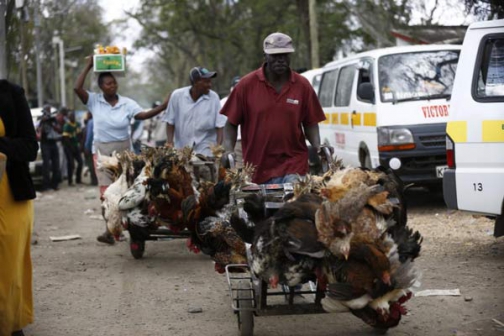×
The Standard e-Paper
Smart Minds Choose Us

On February 10, poultry stakeholders appealed to the government not to lift the importation ban on Uganda poultry and its products.
The ban had been put in place after dead wild birds tested positive for the Highly Pathogenic Avian Influenza (HPAI).
The press statement read by Kenya Poultry Farmers Association (KEPOFA) chair Wairimu Kariuki, raised a number of concerns.